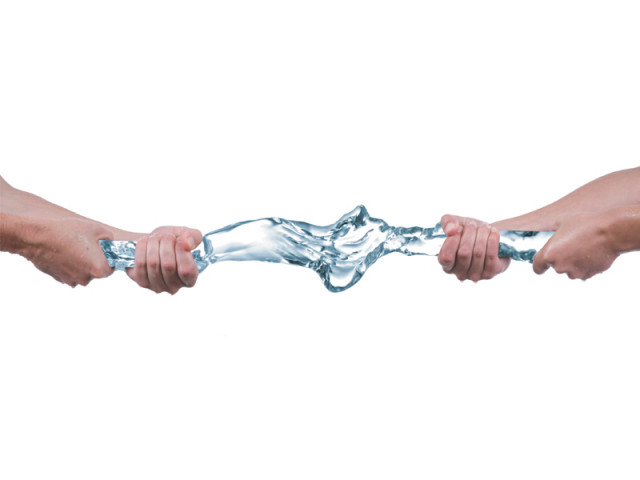Rules of engagement: India to be asked to arrange inspection of Wullar Barrage
Pakistan wishes to set this as a precondition for bilateral negotiations between water secretaries of both countries.

Experts are of the view that the caretaker government should not involve itself in this issue and that it should leave negotiations for the incoming government. DESIGN: KIRAN SHAHID
Pakistan has decided to ask India again to arrange an inspection of the disputed Wullar Barrage/Tulbul Navigation Project in occupied Kashmir before the resumption of secretary level talks. The talks had been postponed earlier due to tension between the two countries over ceasefire violations along the Line of Control (LoC).
“India should be asked that the inspection of the Wullar Barrage be made a precondition to secretary level talks between the two countries,” Ministry of Water and Power officials said in a meeting held on Monday. Sources said Ministry of Water and Power Additional Secretary Arshad Mirza had chaired a meeting on water issues involving India to come up with a formal agenda.
Two-day negotiations on the Wullar Barrage between the water secretaries of Pakistan and India, originally scheduled for January 28 and 29, had been postponed amid tensions between the two countries over ceasefire violations along the LoC.
“The Foreign Office will hold a meeting on Tuesday (today) to discuss the dispute over the Wullar Barrage, which will be taken up during upcoming talks between the two countries,” sources said; adding that the water and power ministry will suggest to the Foreign Office that India should be asked again to conduct an on-site inspection before the talks get underway.

Experts are of the view that the caretaker government should not involve itself in this issue and that it should leave negotiations for the incoming government. However, sources said that officials in the water and power ministry are eager to visit India and are in a hurry to come up with a plan of visit before the meeting scheduled at the Foreign office today.
During the most recent bilateral talks on water issues, held in Lahore on March 23 between the Indus water commissioners from both sides, the Pakistani team had asked their Indian counterparts to arrange an inspection of the Wullar Barrage site. The Indian team had said that it was seeking approval from competent authorities for arranging the visit.
Some media reports quoted Indian officials as saying that they prefer to seek international arbitration in the resolution of the issue, which has dragged on for nearly two decades now. An official from Pakistan’s Ministry of Water and Power concurred with that approach, saying that Pakistan would also prefer to go to an international court of arbitration if the two sides fail to reach an amicable settlement and India tries to push ahead with the project.
Published in The Express Tribune, April 16th, 2013.
Like Business on Facebook to stay informed and join in the conversation.



















COMMENTS
Comments are moderated and generally will be posted if they are on-topic and not abusive.
For more information, please see our Comments FAQ